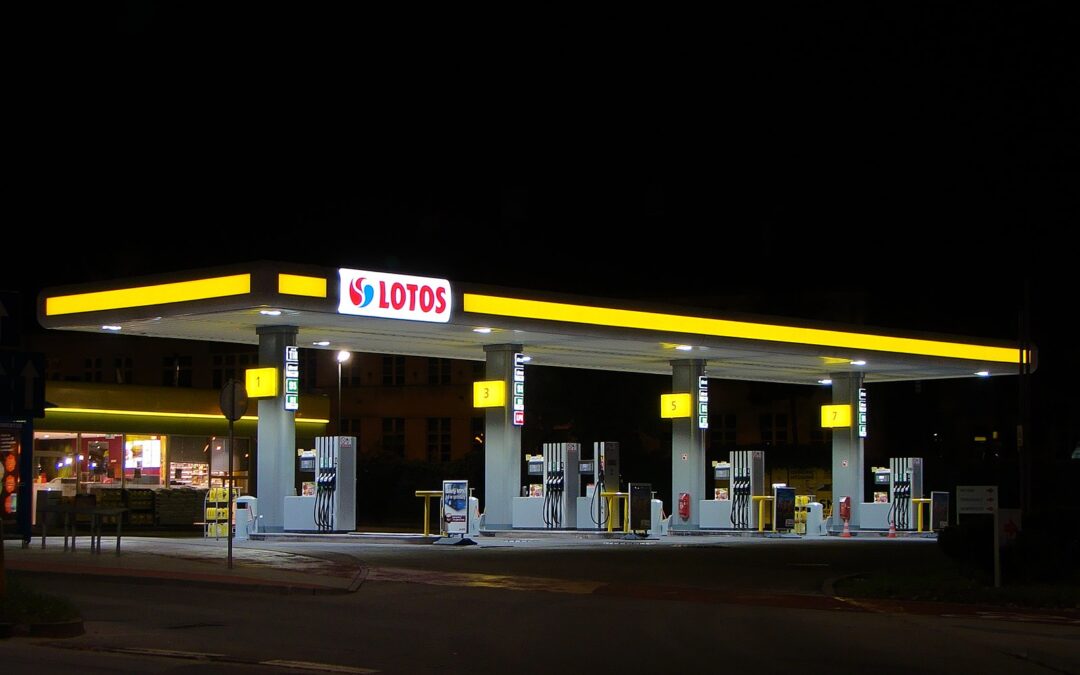Retail prices for both petrol and diesel have hit their highest level for years in Poland, as oil and gas become more expensive globally. With Poland also experiencing its highest inflation for two decades, the rises could increase pressure on the government, which criticised its predecessors for high fuel prices.
The price of 95-octane fuel dropped below 4 zloty last April, early in the pandemic, reports StrefaInwestorow, an investment information service. But now, amid a global shortage of oil, which Poland imports to make petrol and diesel, the retail price of fuel in the country has soared, passing the symbolic 6 zloty mark.
On Wednesday this week, the average retail petrol price in Poland was 6.09 zloty per litre of 98-octane and 5.89 zloty for both 95-octane fuel and diesel, according to e-petrol, which monitors the market. The website called the prices “the highest in the history of its records”.
According to Bankier.pl, a financial news service, the average price of Euro 95 fuel in Poland already stood at an average of 5.85 zloty in the first week of October – which is the latest on the site’s record – which nears the previous peak of 5.86 zloty in September 2012.
Moreover, the state-owned petrol giant Orlen – which imports oil mostly from Russia, the Middle East and Norway – recorded its highest ever wholesale diesel price on Tuesday, at 4.92 zloty per litre, compared with 3.29 zloty last year, reports Business Insider Polska.
In retail, the most expensive PB 98 petrol was being pumped in the provinces of Mazowieckie, where Warsaw is located, and Podlaskie (at 6.05 zloty) as well as in Opolskie for PB 95 petrol (at 5.77 zloty).
According to price aggregator CenaPaliw, several stations reached prices of 6.50 zloty per litre of 95-octane fuel this week. These included one in the eastern city of Lublin (Witosa 6), in the northern town of Połczyn-Zdrój (Warszawska), and the southern city of Sosnowiec (Jana Długosza 80).
The website had also recorded a 7.00 zloty price for the more expensive 98-octane petrol in Połczyn-Zdrój, but while widely reported, the data are sourced from drivers and so could contain errors in such outliers.
piątek z szóstką. pic.twitter.com/l2RcJYO3HQ
— rafałhirsch (@rafalhirsch) October 15, 2021
Experts believe that fuel prices may continue to rise. Wojciech Jakóbik, editor-in-chief of the Biznes Alert website, told RMF24 that “six zloty per litre of fuel is just the beginning” and that drivers must “take into account the possibility of prices as high as seven zloty”.
Soaring energy and fuel prices have been one of the key drivers of inflation, which hit its highest level in two decades, at 5.9% year-on-year in September, as officially confirmed by Statistics Poland (GUS) today.
High petrol prices have fuelled political arguments for years in Poland. During a previous jump in prices in 2011, the Law and Justice (PiS) party, which was in opposition at the time, blamed the then PO-PSL government for the high prices, which it argued were being driven by excise taxes.
We wrześniu 2021 r. #ceny towarów i usług konsumpcyjnych w porównaniu do września 2020 r. wzrosły o 5,9% (wskaźnik cen 105,9), a w stosunku do sierpnia 2021 r. wzrosły o 0,7% (wskaźnik cen 100,7). https://t.co/05krujl9cw#GUS #CPI #WskaźnikCen #statystyki #inflacja pic.twitter.com/F8Ec1DetWs
— GUS (@GUS_STAT) October 15, 2021
A radio spot from the party in 2011 started with the words “Have they gone mad? Do you know that fuel is at 5.40 zloty already?”. In the following year, the party’s chairman, Jarosław Kaczyński, who is now deputy prime minister, pinned the blame for expensive imports on the then government “decreasing the value of the zloty” by driving up debt.
PiS came to power in late 2015 and petrol prices did drop after 2017. In 2019, while they were still low, the PiS government introduced a new fuel surcharge of 80 zloty net per 1,000 litres of fuel.
In August this year, deputy prime minister Jacek Sasin said that fuel prices were “shaped by a number of market and macroeconomic factors” which were “largely independent” of the state-owned petrol giants that he oversees as minister of state assets.
Telewizja Trwam usuwa materiał. Chodzi o krytykę PiS za drogie paliwohttps://t.co/jfZoxeFrf5
— Michał Protaziuk (@michalprotaziuk) October 14, 2021
Main image credit: Przemysław Czopor/Wikimedia Commons (under CC BY 3.0)

Maria Wilczek is deputy editor of Notes from Poland. She is a regular writer for The Times, The Economist and Al Jazeera English, and has also featured in Foreign Policy, Politico Europe, The Spectator and Gazeta Wyborcza.




















